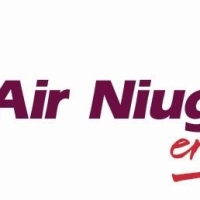The Importance of Foreign Media in PNG’s Domestic Discourse

Paul Barker, Director of PNG’s Insitute of National Affairs, yesterday poignantly noted that the relationship between Australia and PNG is an important but a rather ambivalent one. Responding to Bob Carr’s extraordinary comments on placing sanctions on PNG, Barker stated that:
“There is an unease within PNG if a statement comes from Australia which appears to give a direction, or seeks to impose a penalty in a manner considered to be patronizing.
It goes to that ambivalent relationship between PNG and Australia.
On the one hand, if Australia ignores PNG, people up here get upset. But if Australia starts coming in being heavy-handed, that raises annoyance.”
That’s a fair observation on the Papua New Guinean attitude toward Australia.
In a more colloquial manner it goes something like this: “Australia, we like you, you’re like our best mate and remind us of our favorite uncle. We’ve been through so much together; we want you help us in any way you can, and we appreciate that, but don’t tell us what to do and how to do it.”
Underpinning this relationship between the two geographically close, but culturally very distinct sovereign states are a number of key threads which hold firm the partnership. One of these threads which plays an important role in shaping and helping to develop and improve the Australia and PNG relationship is foreign media.
And none play, or should play, a more important role than the Australian press.
Obviously, the Australian press and foreign media fulfill the function of keeping their own people informed on the events and issues happening within PNG. But the function of foreign media is more than simply just this. Foreign media also has an important role to play in the domestic discourse happening within PNG.
A good example of this is the Sydney Morning Herald’s revelation of Deputy Prime Minister Belden Namah’s antics at Sydney’s The Star casino. The report involved allegations of alcohol-fueled gambling and indecent behavior toward casino staff.
In addition, it also suggested that Namah had tried to procure sex from a male staff member. The importance of this particular allegation, whether true or not, should not be lost here.
That story inevitably landed on the front pages of the two PNG dailies, The National and the Post-Courier, attracting strong criticism from not only Namah’s political opponents, but also from NGOs and civil organisations. It has also raised eyebrows within the ruling O’Neill-Namah coalition. Predictably, the story has also been negatively received by the public.
And in a country where homosexuality is yet to be accepted, the connotations of the Deputy Prime Minister soliciting a male casino staff member for sex has had an immense negative impact on the public’s perception of Belden Namah. This single allegation and what it presents has probably damaged Namah’s image more so than any other previous allegation of misconduct.
It was no wonder that Namah responded so aggressively to the allegation.
He immediately called a press conference on Thursday to respond to the report and deliberately did not invite foreign media. In that press conference, he claimed the reports were unfounded and malicious and demanded the Fairfax group to immediately retract the “misleading and unfounded claims.”
Reporting on that press conference, The National ran a front page story today with the screaming headline, “Namah: I am not gay”. In that article Namah stated, “I want to make it clear, I am not gay.”
No comment on the alcohol-fueled gambling, no comment on the allegation of blowing $800,000, no comment on his abusive behavior, only a comment clarifying that he was not gay.
He further revealed that his lawyer will engage three Sydney based Queen’s Council to take the Fairfax-owned Sydney Morning Herald to court for defamation, accusing the newspaper of intending to discredit him and his reputation.
This past week has been a week of Papua New Guinea headlines in Australia’s media for political gaffes on both sides of the Torres Strait – Belden Namah and his unorthodox casino antics, and Bob Carr and his premature oral ejaculation.
Foreign media, and particularly Australian media have an important role in reporting what is happening in PNG. Their reporting not only helps inform their home nations but also adds value to our own domestic discourse.
Despite the unwelcome reasons why PNG has been on Australia’s media headlines recently, the fact that we are being highlighted in such a prominent manner, can only be good for PNG and Australia.
~ by Tavurvur on March 16, 2012.
Posted in PNG International Issues, PNG Politics
Tags: Australia, Belden Namah, Bob Carr, Foreign Media, Homosexuality, Institute of National Affairs, Paul Barker, Peter O'Neill, PNG, Post-Courier, The National














I found it ironic how Sir Michael Somare is taking advantage of the Australian press’ reporting of events in PNG, particularly around the Namah episodes, by attacking the ruling government.
I seem to remember Somare throwing the kitchen at Australian press not too long ago when he himself was on the receiving end of some harsh Australian criticism.
Good point. Funny how that happens. Sir Michael is probably hoping the Australian press continue to embarrass Belden Namah and Peter O’Neill.
Let’s see what happens.